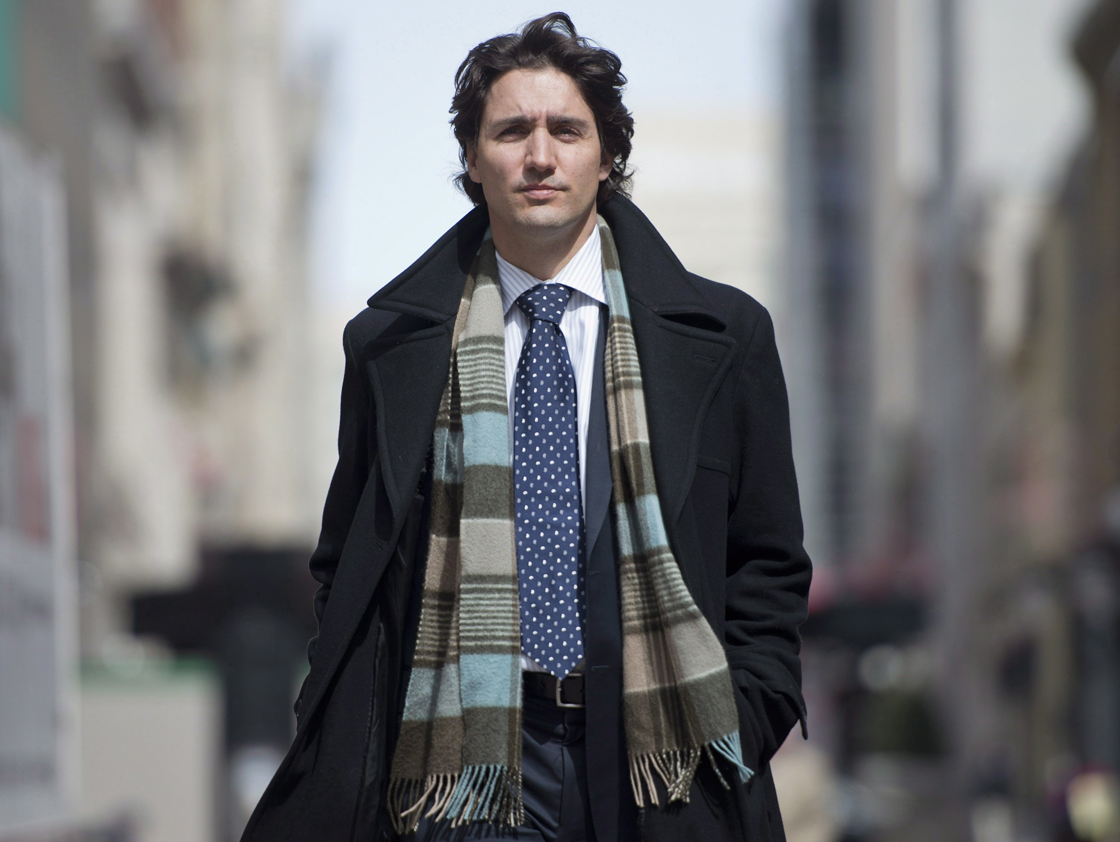OTTAWA – Justin Trudeau has made no apologies for offering little in the way of substantive policy prescriptions during the Liberal leadership race.

Indeed, Trudeau has argued it’s not the leader’s role to hand down commandments from on high to grassroots Liberals. Instead, he’s promised that if he becomes leader, he would develop the party’s platform from the bottom up, based on consultations from Liberals in particular and Canadians in general.
During the leadership campaign, Trudeau launched a “soapbox” feature on his website in a bid to encourage policy input from average folks.
“This campaign is about conversations, not one-way monologues,” he said on the site. “We believe that good ideas can come from any corner, and that Canadians deserve the opportunity to share their concerns and offer up their ideas.”
Still, on some select issues, Trudeau has offered some glimpses of where he’d take the party, and the country, if given the chance:
– Democratic reform: Trudeau unveiled a detailed five-point plan aimed at making Canada’s electoral system more representative of Canadians’ choices and MPs more responsive to the views of their constituents. It includes:
– Requiring all prospective Liberal candidates, including incumbent MPs, to win the right to carry the party banner during an election through open nomination contests.
– Empowering backbenchers by loosening party discipline, allowing Liberal MPs to vote as they see fit on everything except bills implementing elements of the party’s 2015 election platform, budget or significant money bills, and “those that speak to the shared values embodied in the Charter of Rights and Freedoms.” He’d also strengthen the parliamentary committee system, limit the ability of government to prorogue Parliament and end the practice of introducing huge omnibus bills that aren’t readily scrutinized by MPs.

Get breaking National news
– Reforming Canada’s first-past-the-post electoral system so that a party’s share of the popular vote is more closely reflected in its share of the seats in the House of Commons. Trudeau would institute a preferential ballot, wherein voters would rank their choices and the winner in each riding would need to capture more than 50 per cent of the vote.
– Creating an arm’s-length body to ensure government advertising is not used for partisan promotion.
– Beefing up third-party oversight by independent officers of Parliament, such as the parliamentary budget officer, and agencies, such as Elections Canada.
– National unity: Trudeau has ruled out any attempt to finally secure Quebec’s signature on the Constitution, patriated by his father, the late Pierre Trudeau, in 1982 over the objections of the province’s separatist government. He says Quebecers aren’t interested in re-opening old constitutional squabbles.
He supports the Clarity Act, which stipulates a clear majority of Quebecers would have to vote Yes to a clear referendum question on independence before the federal government would agree to negotiate the terms of a divorce. He is adamantly opposed to the NDP’s proposed replacement bill, which would require only a bare majority of 50 per cent plus one vote to trigger negotiations.
Trudeau has said he believes Quebec’s current language laws are sufficient to protect francophones and don’t need to be strengthened.
– Senate reform: Trudeau considers an elected Senate a “terrible idea” that would exacerbate the under-representation of western provinces and potentially result in parliamentary gridlock on issues where the Senate was at odds with the House of Commons. He said he believes better quality appointments, along with 12-year term limits, are all that’s required to fix the much-maligned upper house.
– Natural resources: Trudeau is opposed to the proposed Northern Gateway pipeline to carry bitumen from Alberta’s oilsands to the B.C. coast, but is open to other, less environmentally problematic pipeline proposals. He supports the contentious Keystone XL pipeline, which would transport bitumen from northern Alberta to Gulf Coast refineries.
He supports foreign ownership, including by state-owned enterprises like China’s CNOOC, in the oilsands and other Canadian resources.
He favours putting a price on carbon but has not specified whether that would be through a carbon tax, cap and trade, regulation or some combination. He would not attempt to reinstate the hated national energy program instituted by his father.
– Education: A Trudeau government’s “highest national economic priority” would be to increase the proportion of Canadians with post-secondary education to 70 per cent from the current rate of just over 50 per cent. He has not specified how he’d do it, but has mused about making student loans repayable according to income earned after graduation, creating a personal registered education savings plan program, and working with private and non-profit sectors to increase workplace training.
– Economy: Trudeau has said his focus will be on improving the standard of living and economic security of middle class Canadians. He has not provided details, other than to rule out increasing the GST back to 7 per cent from the current 5 per cent and saying he would scrap the Harper government’s plan to raise the age of eligibility for old age security to 67 from 65. Trudeau has also ruled out changes to corporate tax rates and the possibility of a so-called “wealth tax” on high-income Canadians.
– Gun control: Trudeau has described the Chretien-era long-gun registry as a “failed” policy that he has no plans to revisit.
– Marijuana: Trudeau supports decriminalization of pot but has expressed skepticism about full-blown legalization, a position adopted by the Liberal rank and file at last year’s policy convention.





Comments